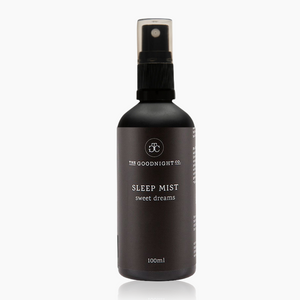
Can't beat those winter blues? The months we dream of fireplaces, hot-chocolates, and curling up in a fluffy, warm doona and never getting out of bed. Unfortunately for us, life calls!
As the days get cooler and evenings get darker, the seasonal change disrupts our sleep cycle and impacts the quality of Zzz’s that we get each night.
A major disruptor to our sleep in the cold months is the changes it makes to our mood, which in turn impacts our internal body clock. Seasons → Mood → Sleep. It’s a domino effect really!
Sleep Fact! Research proves that humans actually need 2-3 extra hours of Zzz’s each night as a result of this change in season and increased tiredness… it’s officially hibernation season!
So how exactly is our mood impacted by winter and how does this play a role in our sleep? Let’s find out!
Less Sun = Less Energy
Feeling sluggish and lethargic, struggling to make it through the day? This is what we like to call the ‘winter slow-down’ and it’s REAL. The key reason we are more tired in the cooler months is because of the decrease in sun exposure that we are getting! As the days begin to get shorter and the evenings get longer, our bodies produce more melatonin (the snooze hormone) and in turn, this impacts our circadian rhythm, leaving us more tired and ready to crawl into bed.
More tiredness, means more napping - which can unfortunately mean, when it's time to sleep at nighttime we might not be so tired. This is often a reason why people experience a worsened sleep quality throughout the winter as their circadian rhythm is out of whack.
Seasonal Affective Disorder
If you feel like your symptoms of depression and anxiety have skyrocketed since the cold weather has kicked in, you may be right! Seasonal affective disorder ‘SAD’ is no myth and it is more common than we know. SAD can cause increased symptoms of anxiety and depression due to a number of lifestyle changes during the colder months. Quite literally making to feel more SAD. When it’s colder and the days become shorter, we often slack on our exercise commitments due to the seasonal tiredness. Less physical activity can lead to heightened symptoms of depression and anxiety following the decrease in endorphins and serotonin. Another cause of seasonal affective disorder is decreased sunlight throughout the day which leads to a lack of serotonin and dopamine production. These symptoms of anxiety and depression can keep us awake, having us tossing and turning throughout the night… Hello insomnia!
5 Things We Can do to Boost Our Snooze Through the Colder Months
- Keep up with our exercise regime. Maintaining a daily exercise routine is important to keep our mindset in check and helps our body produce endorphins and dopamine. It is absolutely crucial for a good night’s sleep so even though it may be easy to hit the snooze button on a colder morning, it is definitely worth the early wake up!
- Maintain a healthy diet to promote a better sleep! We know the cravings hit HARD in the cold weather but trust us… a healthy diet is KEY to beating seasonal affective disorder! When we eat clean our bodies and minds thank us, and in turn our mood is brighter and we experience less symptoms of anxiety and depression - leading to a deep sleep at night with a more stabilised sleep-wake cycle.
- Consider natural sleep aids. Natural sleep aids help to ease your body into sleep and help decrease our wake up times throughout the night. This will help to fight of those winter blues as we will feel less tired throughout the day when we get a better sleep at night time.
- Pay attention to temperature. During the cold it is common for people to reach for the flannelette pyjamas and thick blankets but end up overheating their bodies and impacting their sleep quality. Most people have a drop in their core body temperature as they get sleepy, but their temperature goes up a few hours into dreamtime, making the sleep environment way too hot if they’re wearing lots of warm clothes. Overheating during the night can cause you to sweat and sleep more fitfully. Try swapping the heavy PJ’s with something lighter and regulated your temperature with your bedding. Use layers of bedding (sheets, light and heavy blankets) and that way you can un-layer during the night to make sure you’re not overheating. The ideal sleep temperature is actually around 18 degrees!
- Don't change your sleep/wake schedule! If we go to bed too early we can end up oversleeping or waking up in the middle of the night without being able to fall back asleep… And who wants that? Set a sleep schedule each night and slowly ease your way into sleep at the right time to ensure you're not falling asleep too early and getting the required amount of sleep.
Want to induce a better, deeper sleep? Try these products for your best night's sleep naturally (and in a bottle!)









